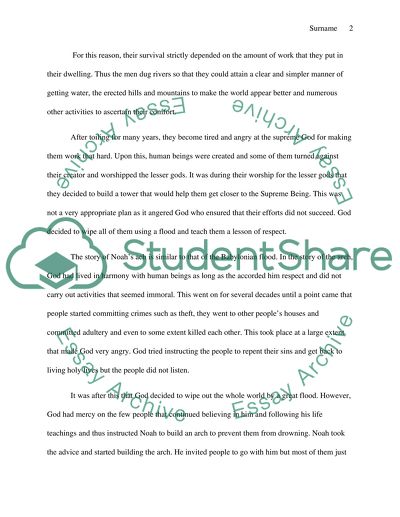Cite this document
(“Classic and Modern Literature. Comparison of the flood Stories in the Essay”, n.d.)
Retrieved from https://studentshare.org/literature/1396281-classic-and-modern-literature-comparison-of-the-flood-stories-in-the-bible-and-the-epic-of-gilgamesh-character-relationships-to-the-gods-the-idea-of-death-according-to-ancient-heroes
Retrieved from https://studentshare.org/literature/1396281-classic-and-modern-literature-comparison-of-the-flood-stories-in-the-bible-and-the-epic-of-gilgamesh-character-relationships-to-the-gods-the-idea-of-death-according-to-ancient-heroes
(Classic and Modern Literature. Comparison of the Flood Stories in the Essay)
https://studentshare.org/literature/1396281-classic-and-modern-literature-comparison-of-the-flood-stories-in-the-bible-and-the-epic-of-gilgamesh-character-relationships-to-the-gods-the-idea-of-death-according-to-ancient-heroes.
https://studentshare.org/literature/1396281-classic-and-modern-literature-comparison-of-the-flood-stories-in-the-bible-and-the-epic-of-gilgamesh-character-relationships-to-the-gods-the-idea-of-death-according-to-ancient-heroes.
“Classic and Modern Literature. Comparison of the Flood Stories in the Essay”, n.d. https://studentshare.org/literature/1396281-classic-and-modern-literature-comparison-of-the-flood-stories-in-the-bible-and-the-epic-of-gilgamesh-character-relationships-to-the-gods-the-idea-of-death-according-to-ancient-heroes.


